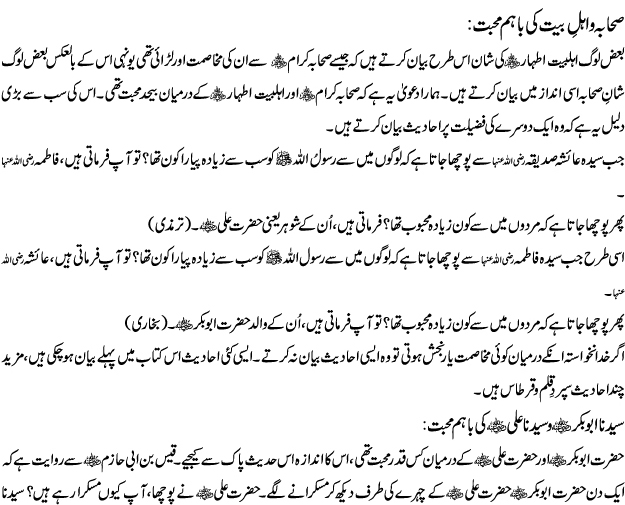
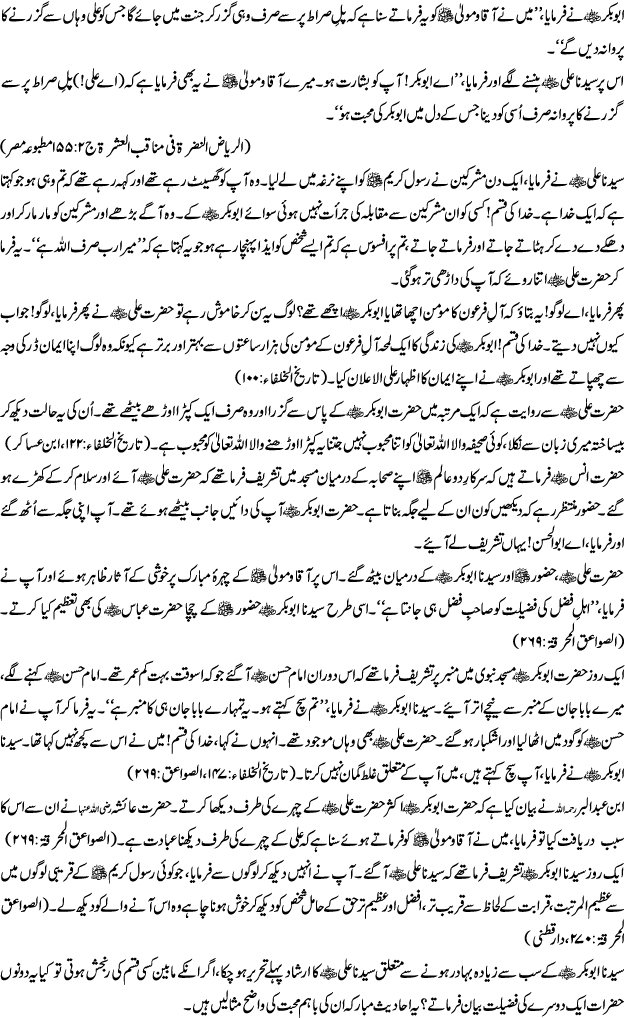
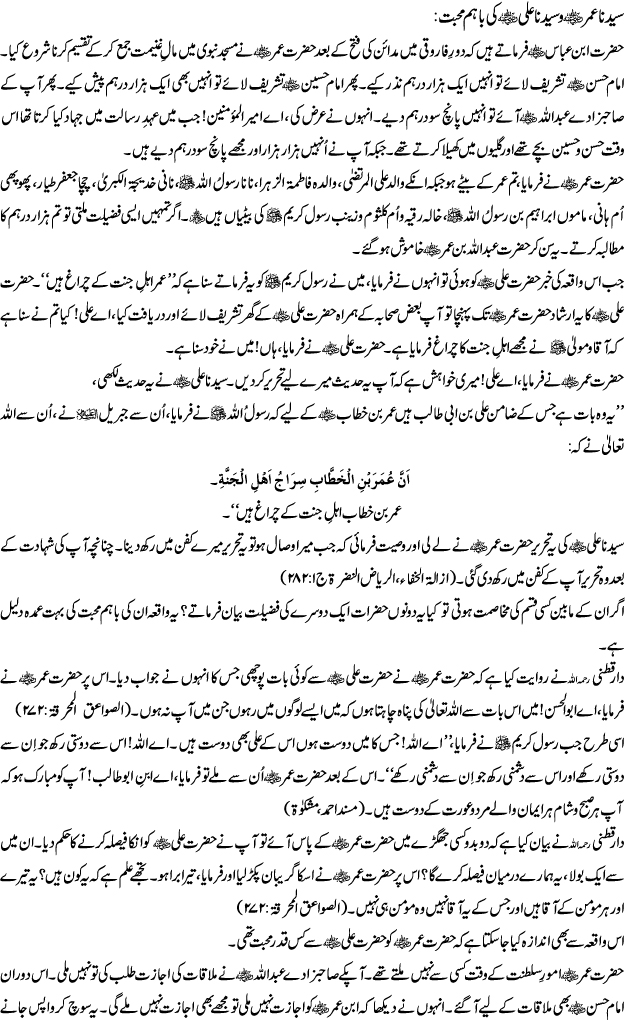
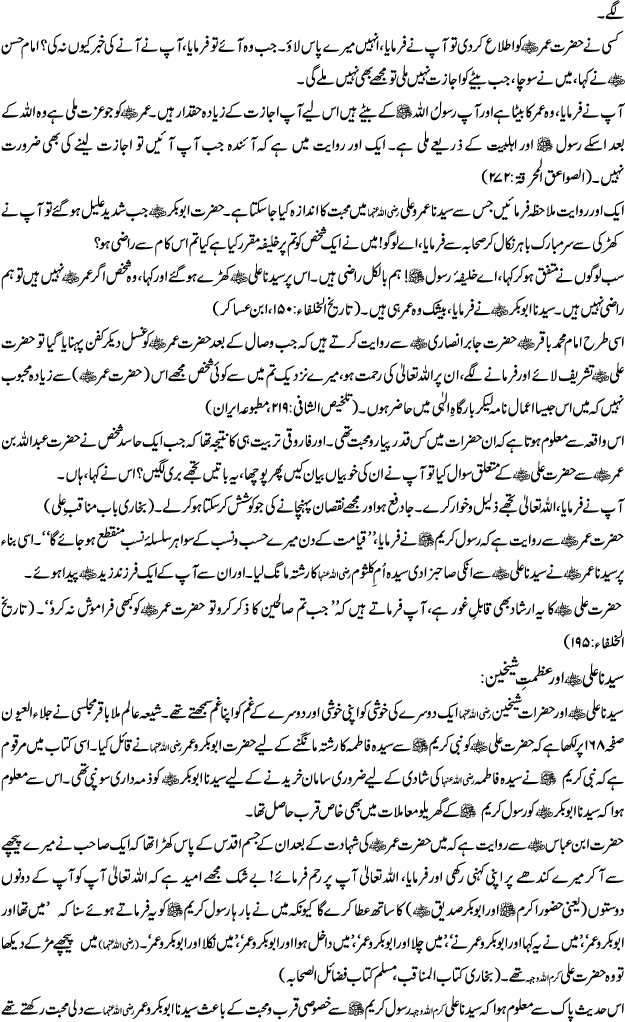
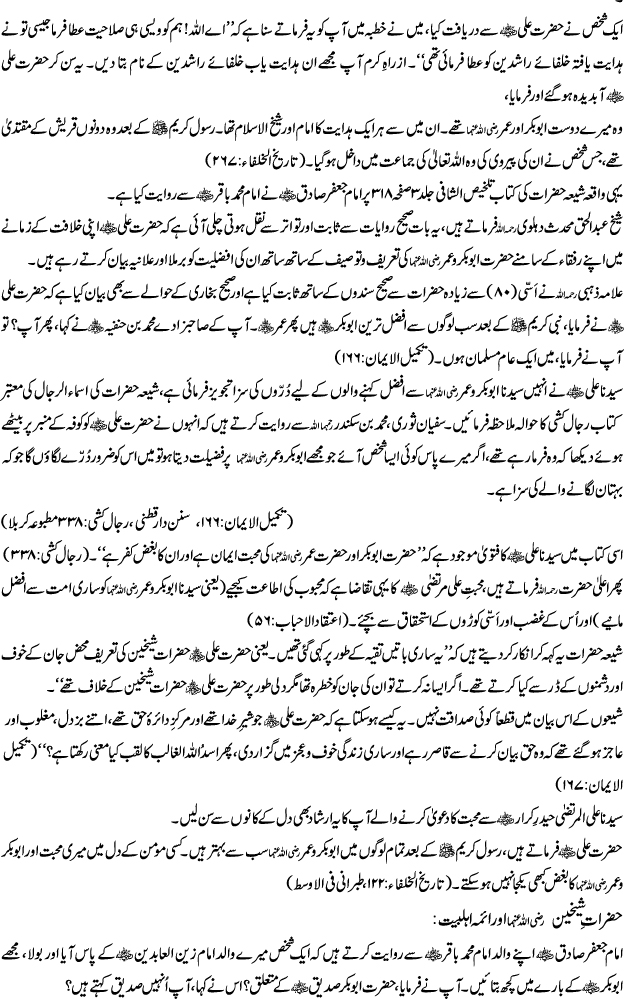
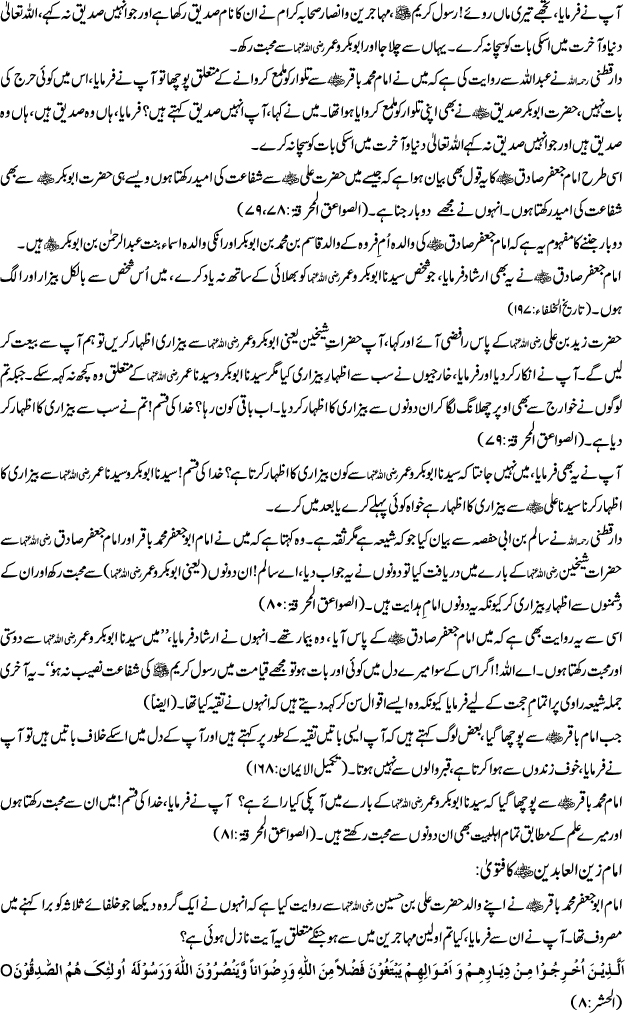
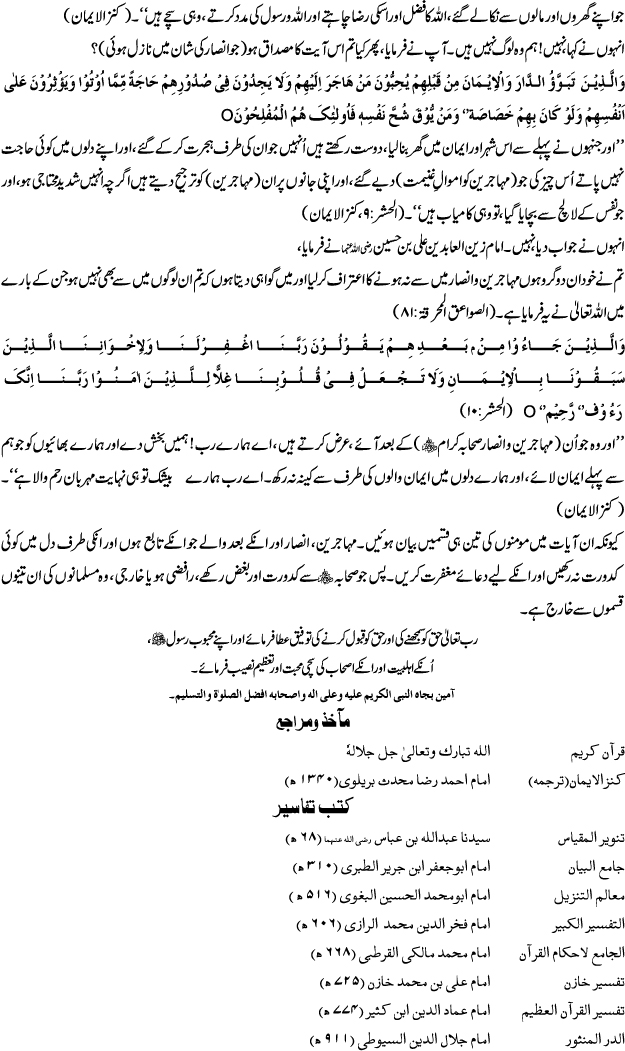
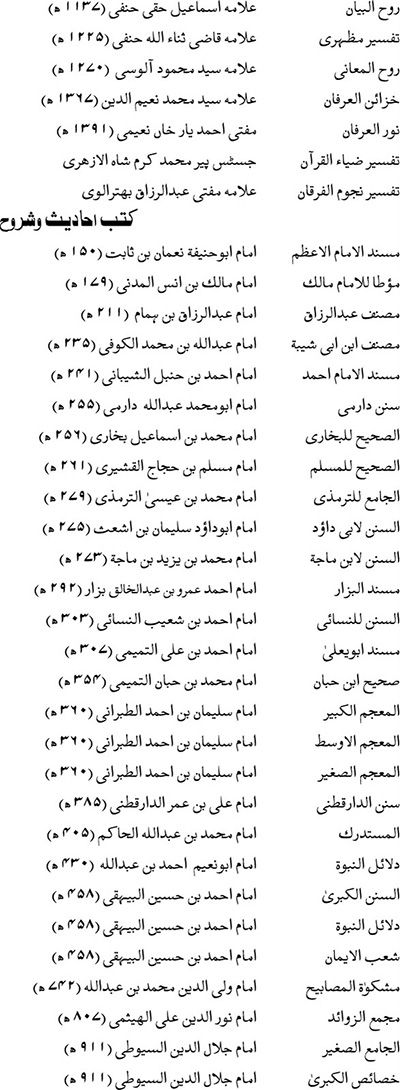
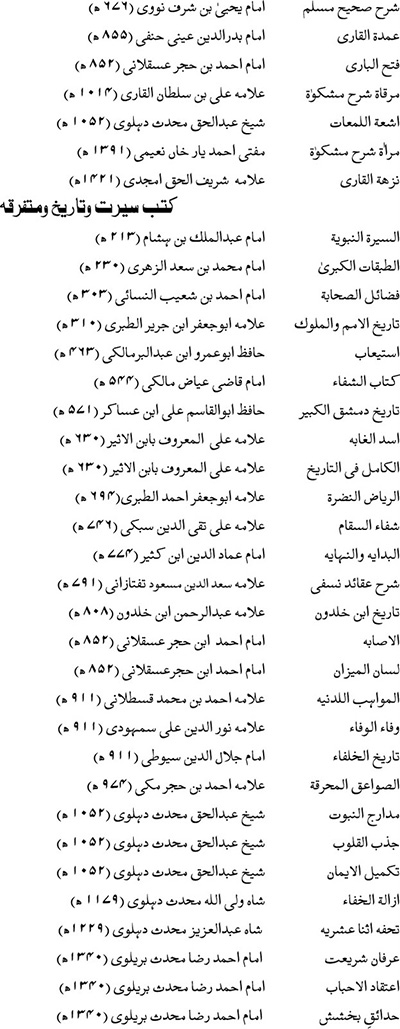
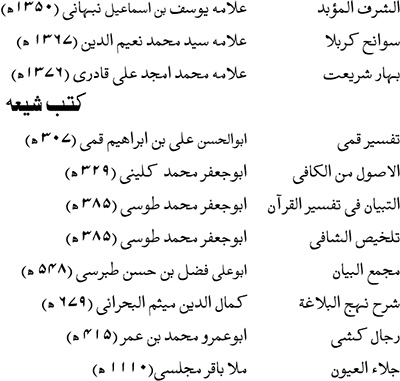
Syedina Siddique E Akbar Loves the Ahle Bait
Reference 4
Hazrat Aisha Razi Allah Anhu:
Hazrat Fatima(Razi allahu taala anhu) sent somebody to Abu Bakr(radiallahu taala anhu )
asking him to give her her inheritance from the Prophet(Sallalaahu Alaihi wasallam ) from
what Allah had given to His Apostle through Fai (i.e. booty gained without fighting). She
asked for the Sadaqa (i.e. wealth assigned for charitable purposes) of the Prophet at
Medina, and Fadak, and what remained of the Khumus (i.e., one-fifth) of the Khaibar booty.
Abu Bakr(radiallahu taala anhu ) said, "Allah's Apostle said, 'We (Prophets), our property
is not inherited, and whatever we leave is Sadaqa, but Muhammad's(Sallalaahu Alaihi wasallam
) Family can eat from this property, i.e. Allah's property, but they have no right to take
more than the food they need.' By Allah! I will not bring any change in dealing with the
Sadaqa of the Prophet (and will keep them) as they used to be observed in his (i.e. the
Prophet's) life-time, and I will dispose with it as Allah's Apostle used to do," Then 'Ali
said, "I testify that None has the right to be worshipped but Allah, and that
Muhammad(Sallalaahu Alaihi wasallam ) is His Apostle," and added, "O Abu Bakr!(Radiallahu
taala anhu) We acknowledge your superiority." Then he (i.e. 'Ali) (Radiallahu taala
anhu) mentioned their own relationship to Allah's Apostle and their right.
Abu Bakr(Radiallahu taala anhu) then spoke saying, "By Allah in Whose Hands my life is. I
love to do good to the relatives of Allah's Apostle rather than to my own relatives" Abu
Bark added: Look at Muhammad(Sallalaahu Alaihi wasallam) through his family (i.e. if you are
no good to his family you are not good to him).
Sahih Bukhari Volume 5, Book 57, Number 60
Notice the last phrase of Syedina Abu Bakr Siddique radiallahu taala anhu ,
Look at Muhammad (sallalaahu alaihi wassallam )through his family
Reference 3
Narrated 'Uqba bin Al-Harith:
(Once) Abu Bakr(radiallahu taala anhu ) offered the 'Asr prayer and then went out walking
and saw Al-Hasan(radiallahu taala anhu ) playing with the boys. He lifted him on to his
shoulders and said, " Let my parents be sacrificed for your sake! (You) resemble the
Prophet(Sallalaahu Alaihi wasallam) and not 'Ali(radiallahu taala anhu )," while
'Ali(radiallahu taala anhu ) was smiling.
Sahih Bukhari Volume 4, Book 56, Number 742:
The passing away of Hazrat Abu Bakr Siddique radiallahu taala anhu
As narrated by Hazrat Jabir bin Abdullah (radi Allahu anhu):
A villager came to Hazrat Ali (radi Allahu anhu) and asked, "O Ameer--ul-Mumineen! Is Abu
Bakr (radi Allahu anhu) in Paradise?"
This question hurt Hazrat Ali (radi Allahu anhu) considerably. So he said,
"I wish I had never come to the world. This statement has never been made by anyone else
before, neither by Rasulullah (sallal laahu alaihi wasallam) nor by any other Muslim after
him. Abu Bakr Siddique (radi Allahu anhu) was always with the Messenger of Allah; he was his
vizier and counsellor. He succeeded him as the Khalifa after his passing away. He who denies
this fact will become a disbeliever. O villager! Hazrat Abu Bakr Siddique (radi Allahu anhu)
sent for me towards his passing away.
The Instructions to Hazrat Maula Ali Radiallahu taala anhu
He said to me, 'O my darling brother! I am going to pass away soon. When I die, wash me with
those blessed hands of yours with which you washed the Messenger of Allah (sallal laahu
alaihi wasallam)! Wrap me in my shroud and put me in my coffin! Take by corpse to the
entrance of Hujra-i-sa'adat! Say unto Rasulullah (sallal laahu alaihi wasallam): Abu Bakr is
at the door. He asks for permission to enter.'